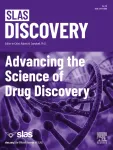(Press-News.org) INDIANAPOLIS – The pandemic has highlighted the importance of increasing the flow of information on infectious diseases from electronic health records (EHRs) to public health agencies. Less attention has been paid to the value of EHR data for chronic disease surveillance.
At the HIMSS (Healthcare Information and Management Systems Society) Global Health Conference & Exhibition (HIMSS23), Brian Dixon, PhD, MPA, of Regenstrief Institute and Indiana University Richard M. Fairbanks School of Public Health and Lorna Thorpe, PhD, MPH, of NYU Grossman School of Medicine, will discuss leveraging EHR data to estimate the incidence and prevalence of chronic conditions of high public health importance.
“The information that clinicians are entering into electronic medical record systems is important not only for clinical care but also population health, particularly identifying new cases of diabetes, new cases of hypertension, and also assessing how much hypertension, how much diabetes, is in our population,” said Dr. Dixon. “Electronic health records are important for public health and not just for tracking infectious disease -- but also chronic disease. EHR data allow us to go into a smaller geographic area -- counties and even neighborhoods -- so that we can better target interventions to address chronic illness in the county where it exists.”
Focusing on diabetes, cardiovascular disease and long COVID, the two population health experts will discuss use of EHR data to advance measurement of chronic disease burdens including:
Importance of use of clinical data in addition to administrative data
Interoperability and integration requirements
Current status of efforts underway, including examples of health systems that are working together in communities across the U.S.
Strategies to amplify efforts in health systems
“We have an opportunity to design a public health infrastructure that allows us not only to detect the next pandemic, but also support what I call routine public health operations like monitoring the burden of chronic illness,” said Dr. Dixon. “We approach this with the goal of using EHR data to improve clinician care for patients with diabetes or other chronic illnesses as well as to help patients better manage their own disease in spite of the many medical, social and other barriers they may confront."
Regenstrief Institute researchers are currently engaged in several chronic disease multi-institution surveillance initiatives using EHR data including a study of long-term COVID consequences in pediatric patients; an early discovery of diabetes in children, adolescents and young adults study; a hypertension study; and a study focused on detecting long COVID cases and assessing the burden of disease at the population level.
The presentation by Drs. Dixon and Thorpe is scheduled for Wednesday, April 19 at 4 p.m. CDT. The HIMSS23 conference takes place from April 17-21 in Chicago. Approximately 40,000 professionals throughout the global health ecosystem are expected to participate in the gathering. The theme is “Health that Connects + Tech that Cares.”
About Brian E. Dixon, PhD, MPA
In addition to his roles as interim director of the Regenstrief Institute’s Clem McDonald Center for Biomedical Informatics and director of public health informatics for Regenstrief Institute and Indiana University Richard M. Fairbanks School of Public Health, Brian E. Dixon, PhD, MPA, is a professor of epidemiology at the Fairbanks School of Public Health. He is also an affiliate scientist at the U.S. Department of Veterans Affairs Health Services Research and Development Center for Health Information and Communication, Richard L. Roudebush VA Medical Center.
About Regenstrief Institute
Founded in 1969 in Indianapolis, the Regenstrief Institute is a local, national and global leader dedicated to a world where better information empowers people to end disease and realize true health. A key research partner to Indiana University, Regenstrief and its research scientists are responsible for a growing number of major healthcare innovations and studies. Examples range from the development of global health information technology standards that enable the use and interoperability of electronic health records to improving patient-physician communications, to creating models of care that inform practice and improve the lives of patients around the globe.
Sam Regenstrief, a nationally successful entrepreneur from Connersville, Indiana, founded the institute with the goal of making healthcare more efficient and accessible for everyone. His vision continues to guide the institute’s research mission.
About the IU Richard M. Fairbanks School of Public Health
Located on the IUPUI and Fort Wayne campuses, the IU Richard M. Fairbanks School of Public Health is committed to advancing the public’s health and well-being through education, innovation and leadership. The Fairbanks School of Public Health is known for its expertise in biostatistics, epidemiology, cancer research, community health, environmental public health, global health, health policy and health services administration.
END
Monitoring chronic disease burden: EHRs can help meet a serious public health challenge
EHR data enables surveillance of small geographic areas -- even neighborhoods -- for chronic diseases
2023-03-30
ELSE PRESS RELEASES FROM THIS DATE:
Exploiting dark autoionizing states for enhancing the extreme ultraviolet laser power
2023-03-30
Exploiting dark autoionizing states for enhancing the extreme ultraviolet laser power
A research team unravels a new optical phenomenon involving dark autoionizing states, enhancing the power of an extreme-ultraviolet laser.
An international research team led by Professors Tsuneyuki Ozaki and François Légaré at the Institut national de la recherche scientifique (INRS), has developed a unique method to enhance the power of a laser source emitting extreme ultraviolet light pulses. The underlying mechanism of the newly observed phenomenon involves the ...
Iridium-based catalysts look set to boost efficiency of green hydrogen production
2023-03-30
Hydrogen production powered by wind and solar energy is still too expensive if it is to play a role in the clean transition via energy storage and to help decarbonize hard-to-electrify sectors. Much effort in reducing its cost focuses on enhancing production efficiency by improving the performance of iridium-based catalysts that can speed up the oxygen-related part of the electrochemical reaction involved in splitting water into its component parts, hydrogen and oxygen. A new review of the state of the field discusses its recent progress and challenges and identifies research gaps that need to be filled before such ...
A promising outlook: CAR T cells improve patient quality of life
2023-03-30
(WASHINGTON, March 30, 2023) – Chimeric antigen receptor T-cell (CAR-T) therapy has transformed cancer treatment, yet relatively few studies have investigated the impact of the therapy on longitudinal patient quality of life – an aspect of care that often suffers from receiving traditional intensive cancer medications, such as chemotherapy. A new study published in Blood Advances demonstrates that some effective cancer treatments do improve quality of life, revealing that patients with blood cancers experienced ...
E. John Wherry, PhD, recognized with the 2023 AACR-Cancer Research Institute Lloyd J. Old Award in Cancer Immunology
2023-03-30
PHILADELPHIA – The American Association for Cancer Research (AACR) will award E. John Wherry, PhD, with the 2023 AACR-Cancer Research Institute (CRI) Lloyd J. Old Award in Cancer Immunology during the AACR Annual Meeting 2023, April 14-19 at the Orange County Convention Center in Orlando, Florida.
Wherry is chair of the Department of Systems Pharmacology and Translational Therapeutics, director of the Institute for Immunology, and founding director of the Immune Health Project in the Perelman School of Medicine at the University of Pennsylvania. He is being honored for ...
Surgery proves effective alternative to chemotherapy and radiation for early metastatic testicular cancer
2023-03-30
LOS ANGELES — A newly published study paves the way for some patients with testicular cancer to avoid chemotherapy and radiation.
Seminoma is a slow-growing form of testicular cancer that if untreated, typically metastasizes (spreads) to lymph nodes in an area behind the abdomen lining called the retroperitoneum. The standard treatment for patients at this stage is chemotherapy and radiation to shrink and kill the cancerous lymph nodes.
While effective, chemotherapy and radiation are associated with long-term side effects, such as cardiovascular disease and secondary cancers, that adversely affect a patient’s quality of life.
Now, however, the results of a multi-institutional ...
BGI Genomics partners with Zentya to launch fecal DNA test for colorectal cancer in Slovakia
2023-03-30
Bratislava, Slovakia, March 21, 2023
BGI Genomics is pleased to announce the launch of COLOTECTTM 1.0 in Slovakia, in collaboration with its local partner, Zentya. Zentya is a Slovak-based healthcare solution provider that is passionate about providing patients with the latest technology in the field of genetic screening, aiming to help identify and facilitate timely treatments of genetic diseases.
COLOTECTTM 1.0 is one of the first-ever fecal DNA tests for colorectal cancer that is available in the country. It is a non-invasive fecal DNA test developed by BGI Genomics for detecting ...
Fake news on Facebook increased 2020 election doubts
2023-03-30
PULLMAN, Wash. — Facebook users were more likely to read fake news about the 2020 U.S. presidential election than users of Twitter and other social media websites, a Washington State University-led analysis found.
The study in Government Information Quarterly indicates that fake news consumption and political alignment were the primary forces driving doubt about the integrity of the vote counting process – and surprisingly not the method used to cast votes. The researchers also found that individuals who got ...
SLAS discovery highlights protocols in drug discovery for March special issue
2023-03-30
Oak Brook, IL – The March special issue of SLAS Discovery deviates from its traditional focus on assay technology, disease area or molecular target to introduce and explore protocol articles – the newly accepted article type for outlining detailed scientific methods and procedures. The six protocol articles featured in this month’s collection cover a range of topics such as 3D imaging, cancer treatments and methods of high-throughput screening.
By publishing protocols, SLAS underscores the importance of transparency and rigor ...
Machine learning models rank predictive risks for Alzheimer’s disease
2023-03-30
COLUMBUS, Ohio – Once adults reach age 65, the threshold age for the onset of Alzheimer’s disease, the extent of their genetic risk may outweigh age as a predictor of whether they will develop the fatal brain disorder, a new study suggests.
The study, published recently in the journal Scientific Reports, is the first to construct machine learning models with genetic risk scores, non-genetic information and electronic health record data from nearly half a million individuals to rank risk factors in order of how strong their association is with eventual development of ...
Cognitive neuroscientist Biyu J. He receives Vilcek Prize for Creative Promise in Biomedical Science
2023-03-30
Biyu J. He receives the Vilcek Prize for Creative Promise in Biomedical Science for her leadership in the field of cognitive neuroscience, and for her groundbreaking discoveries on the biological bases of perceptual cognition and subjective experience.
The Vilcek Prize for Creative Promise is a $50,000 prize awarded annually by the Vilcek Foundation as part of its prizes program. Awarded annually since 2006, the Vilcek Foundation prizes recognize and celebrate immigrant contributions to scientific research and ...
LAST 30 PRESS RELEASES:
ASU researchers to lead AAAS panel on water insecurity in the United States
ASU professor Anne Stone to present at AAAS Conference in Phoenix on ancient origins of modern disease
Proposals for exploring viruses and skin as the next experimental quantum frontiers share US$30,000 science award
ASU researchers showcase scalable tech solutions for older adults living alone with cognitive decline at AAAS 2026
Scientists identify smooth regional trends in fruit fly survival strategies
Antipathy toward snakes? Your parents likely talked you into that at an early age
Sylvester Cancer Tip Sheet for Feb. 2026
Online exposure to medical misinformation concentrated among older adults
Telehealth improves access to genetic services for adult survivors of childhood cancers
Outdated mortality benchmarks risk missing early signs of famine and delay recognizing mass starvation
Newly discovered bacterium converts carbon dioxide into chemicals using electricity
Flipping and reversing mini-proteins could improve disease treatment
Scientists reveal major hidden source of atmospheric nitrogen pollution in fragile lake basin
Biochar emerges as a powerful tool for soil carbon neutrality and climate mitigation
Tiny cell messengers show big promise for safer protein and gene delivery
AMS releases statement regarding the decision to rescind EPA’s 2009 Endangerment Finding
Parents’ alcohol and drug use influences their children’s consumption, research shows
Modular assembly of chiral nitrogen-bridged rings achieved by palladium-catalyzed diastereoselective and enantioselective cascade cyclization reactions
Promoting civic engagement
AMS Science Preview: Hurricane slowdown, school snow days
Deforestation in the Amazon raises the surface temperature by 3 °C during the dry season
Model more accurately maps the impact of frost on corn crops
How did humans develop sharp vision? Lab-grown retinas show likely answer
Sour grapes? Taste, experience of sour foods depends on individual consumer
At AAAS, professor Krystal Tsosie argues the future of science must be Indigenous-led
From the lab to the living room: Decoding Parkinson’s patients movements in the real world
Research advances in porous materials, as highlighted in the 2025 Nobel Prize in Chemistry
Sally C. Morton, executive vice president of ASU Knowledge Enterprise, presents a bold and practical framework for moving research from discovery to real-world impact
Biochemical parameters in patients with diabetic nephropathy versus individuals with diabetes alone, non-diabetic nephropathy, and healthy controls
Muscular strength and mortality in women ages 63 to 99
[Press-News.org] Monitoring chronic disease burden: EHRs can help meet a serious public health challengeEHR data enables surveillance of small geographic areas -- even neighborhoods -- for chronic diseases





